Table of Contents
A good idea is worth next to nothing if we can’t convince others of its value. The art of persuasion is often dismissed by those convinced of the strength of their own ideas. Unfortunately, this means that they remain the only ones convinced.
Persuading others of our ideas is the action that turns ideas into a reality. Persuasion is difficult and it can be even more difficult with the types of intelligent, thoughtful, and principled people that you want to convince of your ideas. So learning the skills of persuasion, of making a convincing case without deception and with good faith, are a must for anyone looking to implement their ideas in the world.
We are often up against the dark underbelly of persuasion, propaganda. Indeed, before we begin persuading others of our ideas, we often have to undo the noxious work that propaganda has done before we arrive.
Perhaps worst of all, each of us is susceptible to propaganda, whether we like it or not. Learning about the inner workings of this nefarious art can provide us with some protection against its effects, but cannot make us immune.
The following quotes about propaganda and persuasion are a must for anyone interested in the open exchange of ideas.
Quotes About Persuasion and the Power of Persuasion
Blaise Pascal
“People are generally better persuaded by the reasons which they have themselves discovered than by those which have come into the mind of others.”
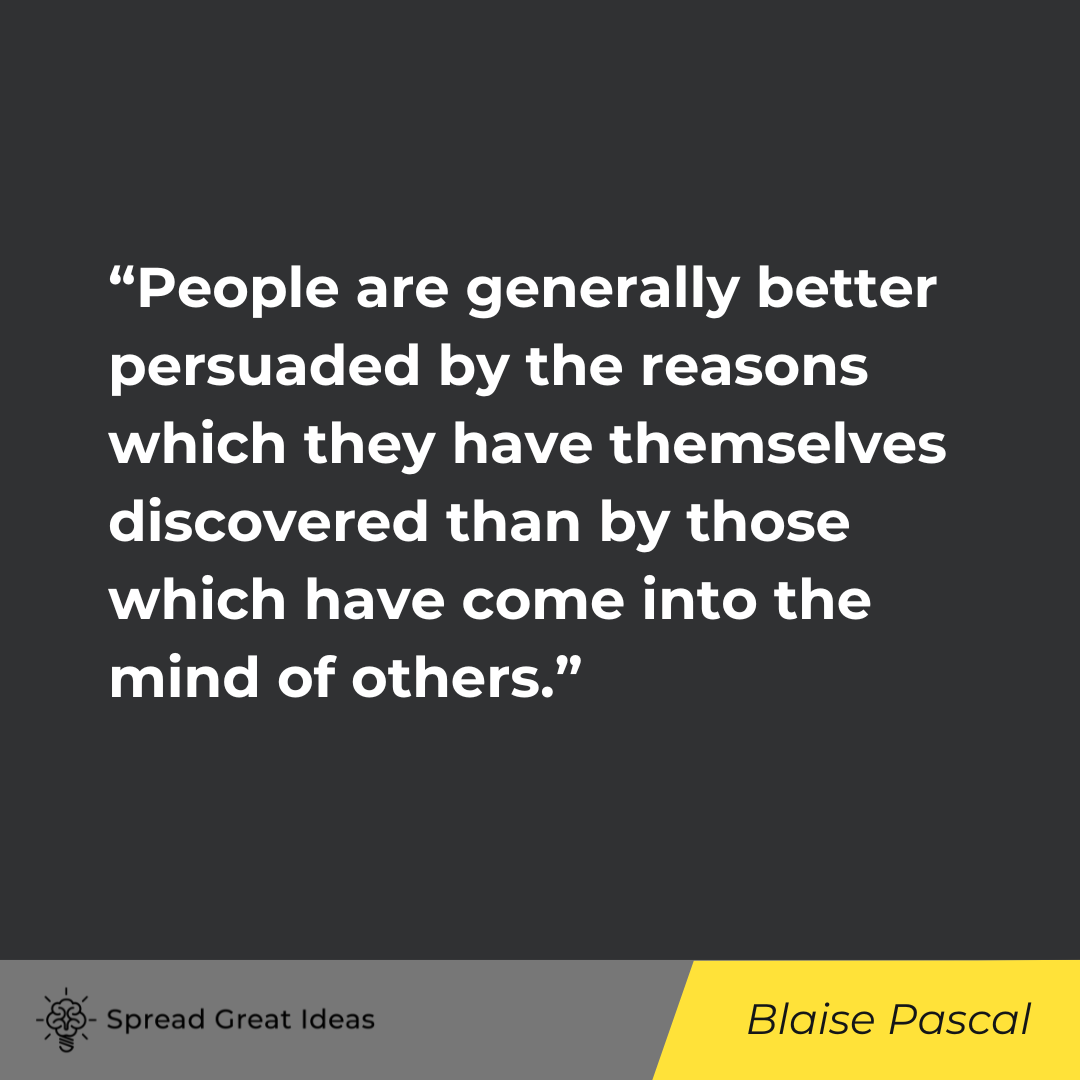
Blaise Pascal’s insight captures the essence of effective persuasion: individuals are more inclined to be convinced by reasons they’ve uncovered independently rather than those imposed upon them. This quote underscores the power of personal discovery in influencing beliefs and decisions. When people arrive at conclusions through their own reasoning, they feel a sense of ownership and validation, making them more receptive to the ideas they’ve embraced. It highlights the importance of fostering critical thinking and allowing individuals the space to explore and form their own opinions. Ultimately, persuasion rooted in self-discovery holds greater sway over the human mind than externally imposed arguments.
Benjamin Franklin
“If you want to persuade, appeal to interest not to reason.”
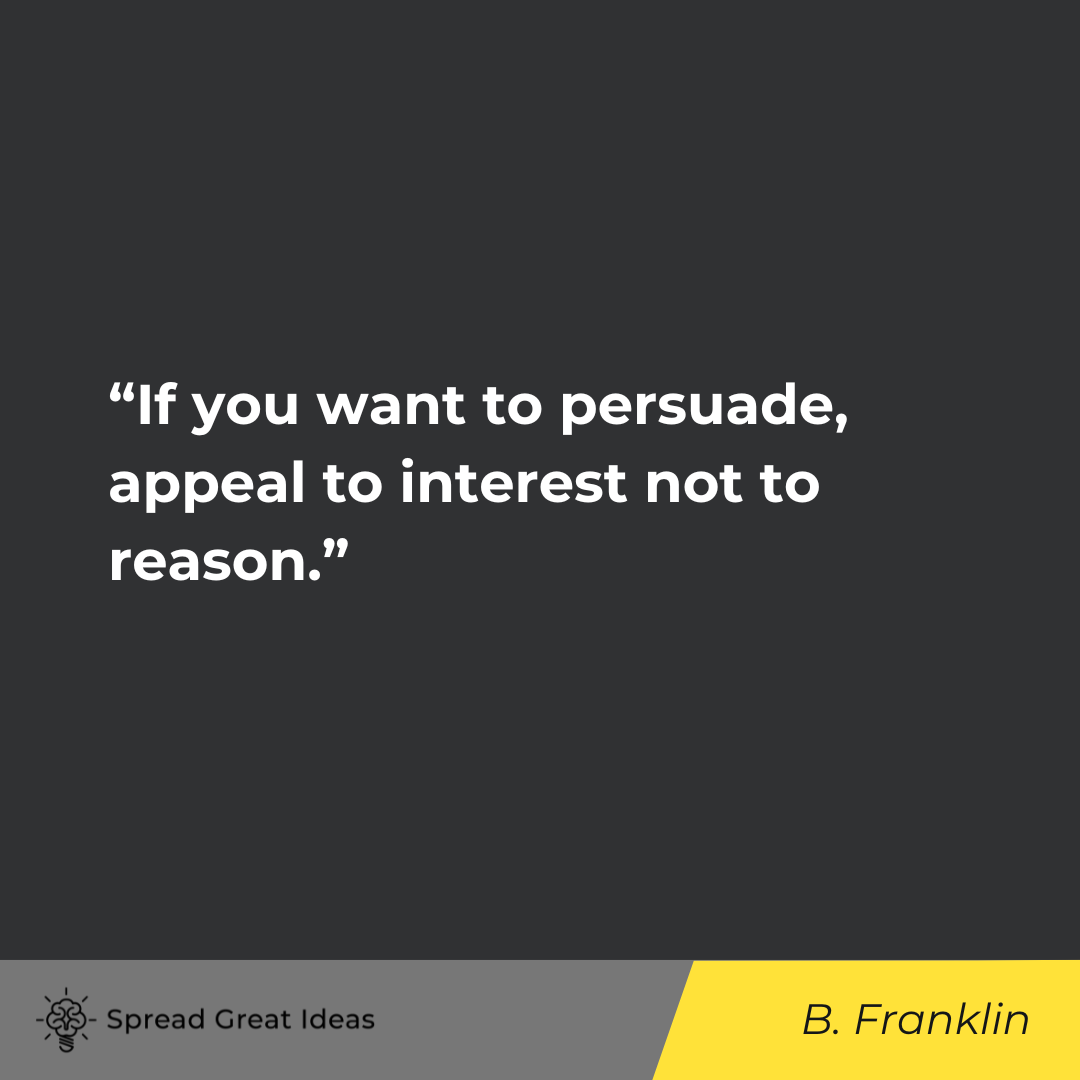
Benjamin Franklin’s astute observation emphasizes the pragmatic aspect of persuasion: appealing to self-interest rather than pure reason. By recognizing and addressing individuals’ interests, whether personal gain, security, or fulfillment, persuasion becomes more effective. Franklin suggests that human nature is inherently self-centered, and to sway opinions or actions, one must align arguments with the audience’s desires and motivations. This approach acknowledges the practicality of human behavior, emphasizing the importance of understanding and leveraging individual interests. In doing so, persuasion becomes not just about presenting logical arguments but about connecting with what truly drives people, making it more compelling and influential.
George Soros
“Being a contrarian is actually very easy. The problem is being a contrarian that makes money.”

George Soros encapsulates the challenge of contrarianism, highlighting that while dissenting from prevailing opinions may be straightforward, achieving financial success in doing so is far more demanding. Being contrarian for the sake of it holds little value; the true test lies in identifying profitable opportunities amidst contrary positions. Soros implies that merely going against the grain isn’t enough; one must possess the insight, analysis, and timing to capitalize on contrarian views effectively. This quote underscores the complexity of navigating markets and the necessity of astute judgment and execution to turn contrarian beliefs into profitable outcomes.
Antonin Scalia
“Persuade your fellow citizens it’s a good idea and pass a law. That’s what democracy is all about. It’s not about nine superannuated judges who have been there too long, imposing these demands on society.”
– Supreme Court Justice Antonin Scalia
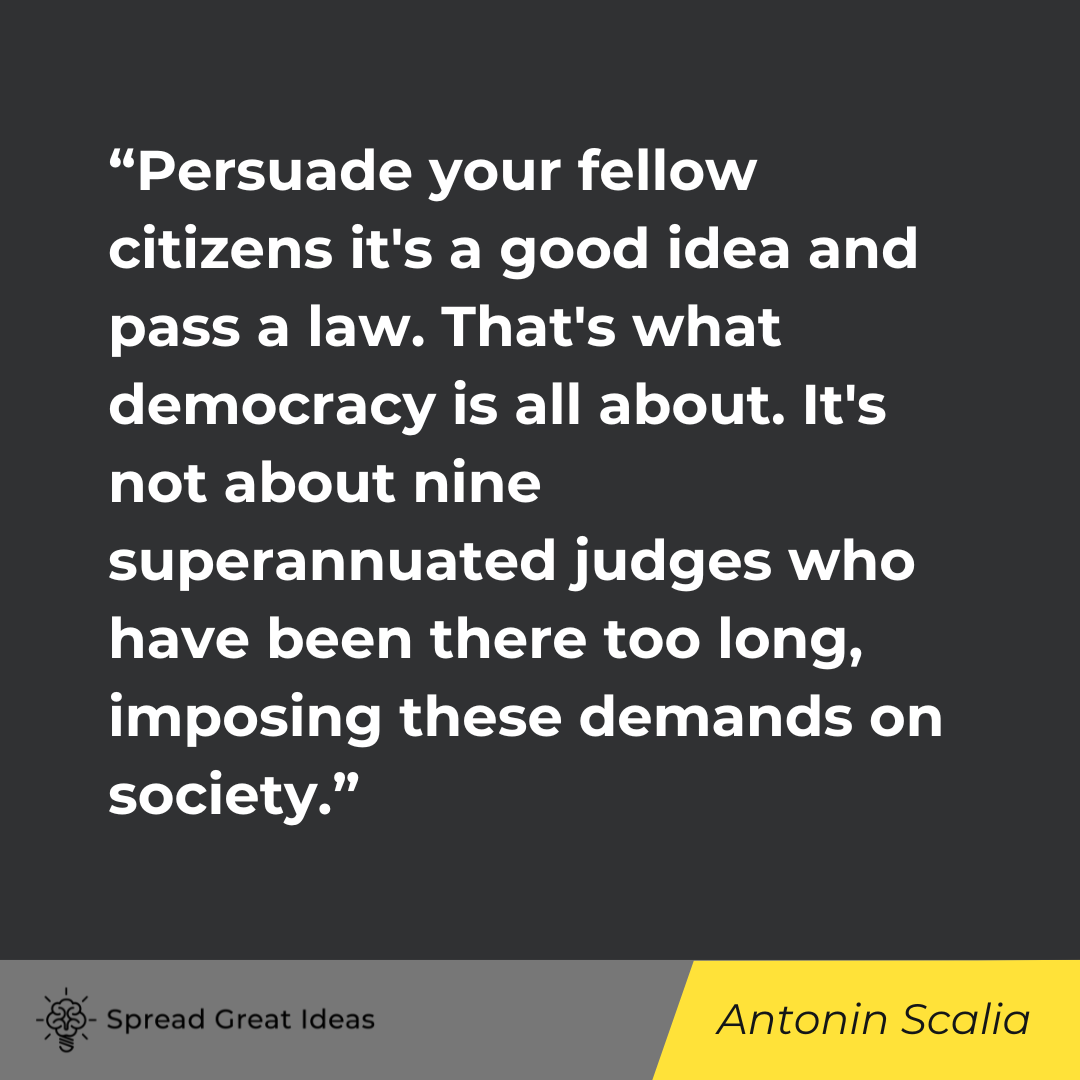
Supreme Court Justice Antonin Scalia articulates a fundamental tenet of democracy, emphasizing the importance of persuasion and legislative action over judicial imposition. By urging citizens to advocate for their beliefs and pass laws democratically, Scalia asserts that governance should reflect the will of the people rather than the interpretations of a few long-serving judges. His critique challenges the notion of judicial activism, advocating for a system where societal changes are driven by the democratic process rather than by judicial decree. In essence, Scalia champions the primacy of citizen engagement and legislative consensus in shaping the fabric of society.
Niccolò Machiavelli
“It is enough to ask somebody for his weapons without saying ‘I want to kill you with them’, because when you have his weapons in hand, you can satisfy your desire.”
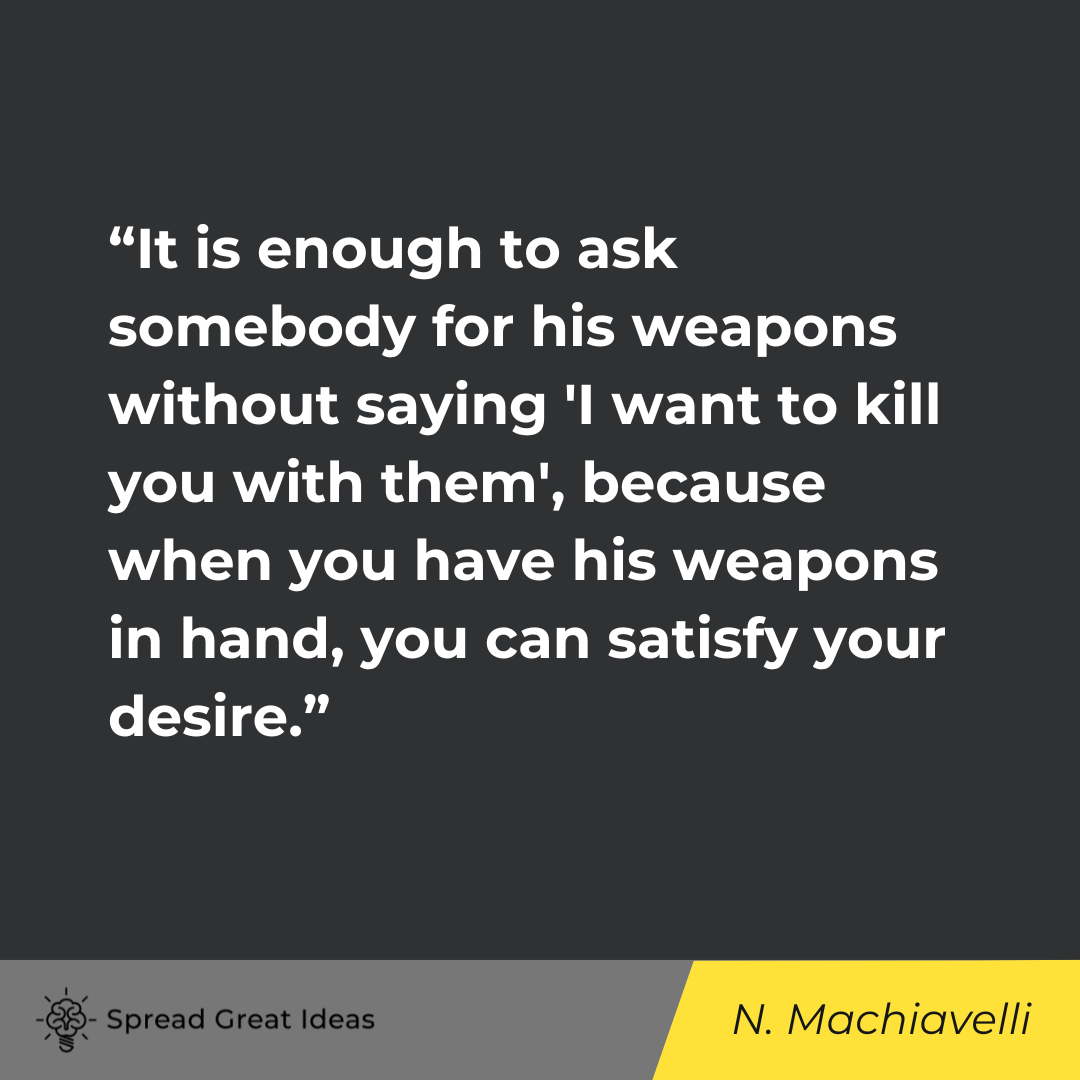
Niccolò Machiavelli, known for his pragmatic views on power dynamics, offers a strategic insight into the acquisition of control. By suggesting the subtlety of disarming an opponent without explicitly revealing hostile intent, Machiavelli underscores the importance of strategy and manipulation in achieving one’s goals. He implies that gaining access to an adversary’s tools or resources can enable the fulfillment of one’s desires, whether through coercion or leverage. This quote reflects Machiavelli’s belief in the efficacy of cunning maneuvers and the importance of exploiting opportunities to assert dominance, even if it means concealing one’s true intentions until the opportune moment arises.
Edward R. Murrow
“To be persuasive we must be believable; to be believable we must be credible; to be credible we must be truthful.”
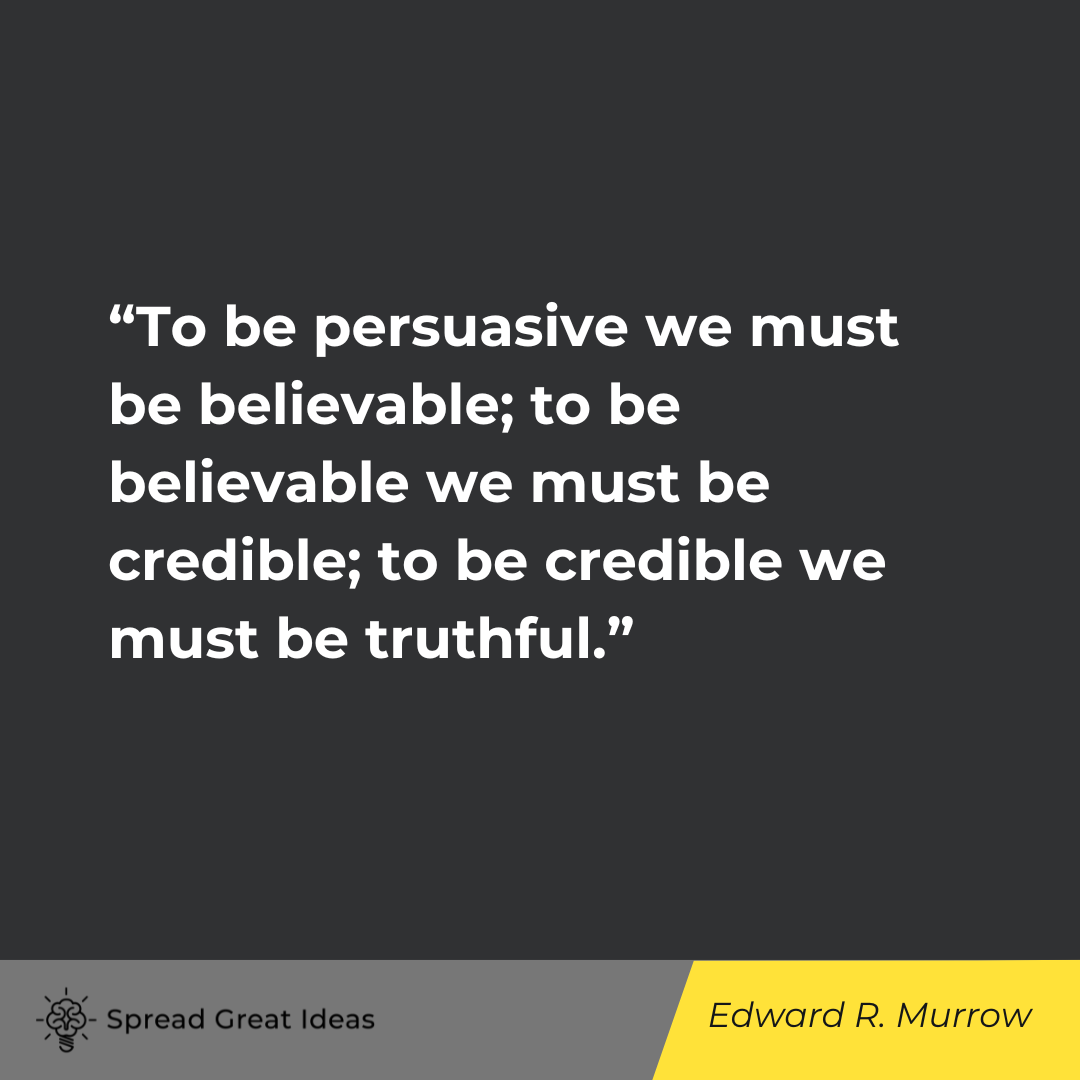
Edward R. Murrow eloquently encapsulates the essence of persuasion, highlighting the essential connection between believability, credibility, and truthfulness. He suggests that the foundation of persuasive communication lies in authenticity and honesty. To sway others, one must first establish credibility by being truthful and trustworthy. Only then can one become believable, and consequently, persuasive. Murrow’s insight emphasizes the importance of integrity and transparency in communication, asserting that credibility is not just a desirable trait but a prerequisite for effective persuasion. In essence, he underscores the power of truth as the bedrock of influence and meaningful discourse.
Winston Churchill
“I’d rather argue against a hundred idiots, than have one agree with me.”
– Unknown, commonly misattributed to Winston Churchill
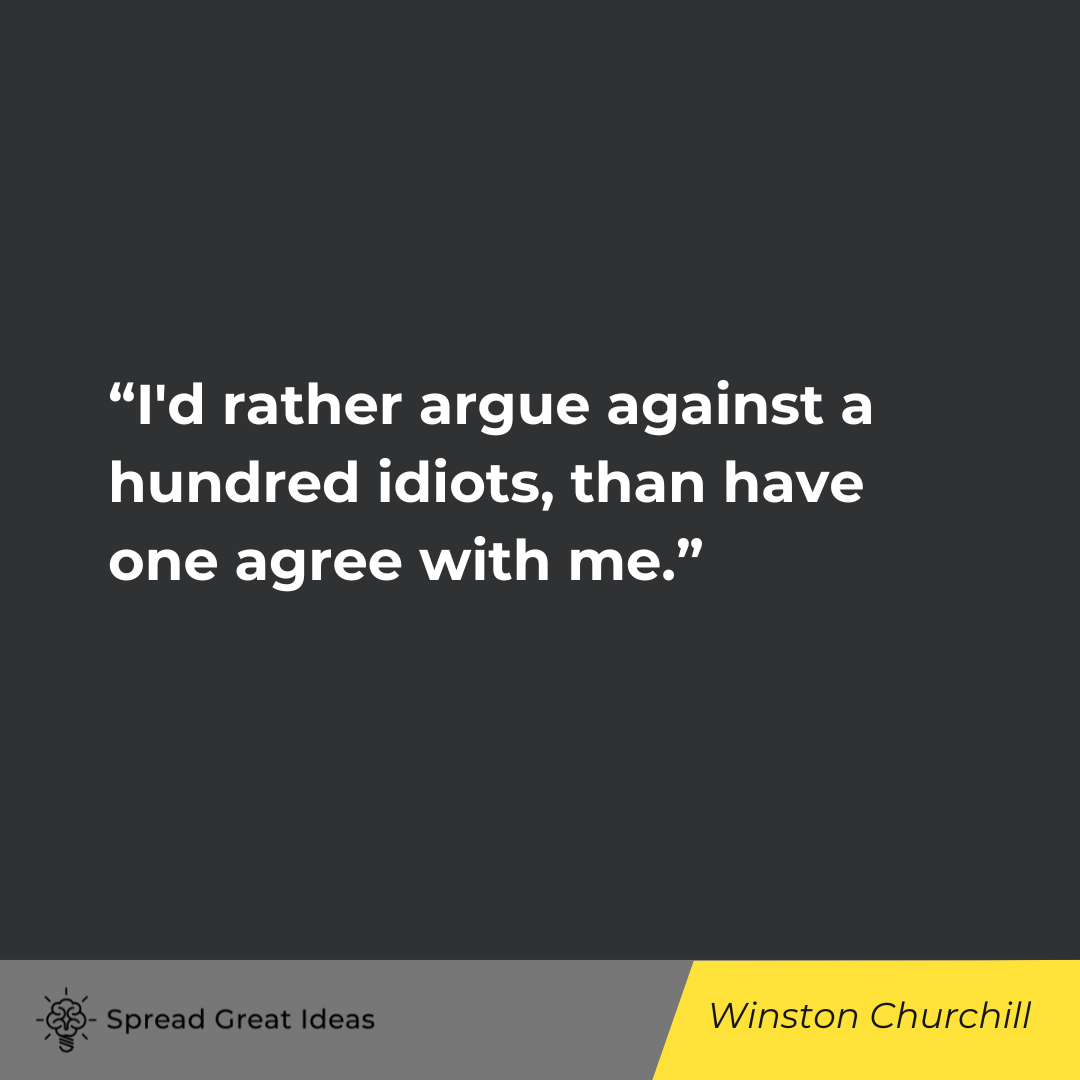
Though often attributed to Winston Churchill, the sentiment of preferring to argue against a multitude of fools rather than gain easy agreement remains profound. This quote underscores the value of intellectual challenge and dissent in honing one’s beliefs. It suggests that engaging with opposing viewpoints, even if seemingly irrational, fosters critical thinking and strengthens convictions. By welcoming debate and disagreement, individuals are forced to confront weaknesses in their arguments and refine their understanding. Thus, the quote celebrates the virtue of intellectual rigor over mere consensus, highlighting the importance of robust discourse in the pursuit of truth and enlightenment.
